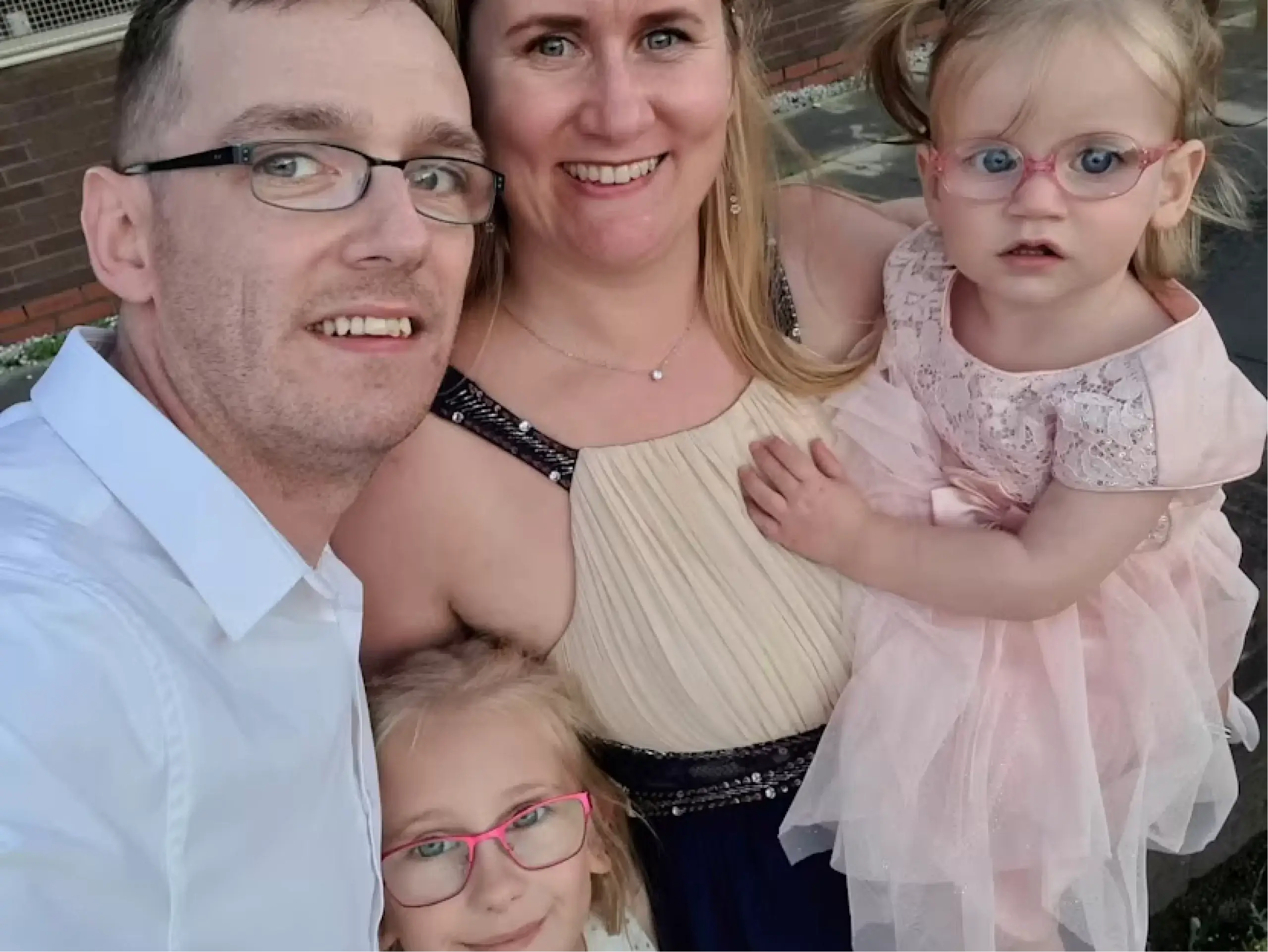Inquest into the Tragic Death of 22-Month-Old Hailey Thompson from Sepsis and Pneumonia (Group A Streptococcus) Concludes on Day 4
This week, Phoenix Solicitors represented the family of 22-month-old Hailey Thompson in Bolton Coroner’s Court at the inquest into her death, which concluded today on day four of the inquest.
The jury retired at 1.48pm for deliberations and returned at around 3.15pm with a determination of natural causes in respect of Hailey’s death – something that was not disputed by her legal team.
Hailey died from sepsis, pneumonia (Group A Streptococcus).
Background
On 18th December 2022, 22-month-old Hailey Thompson from Ashton-in-Makerfield, Wigan, tragically passed away from a Group A Streptococcus infection.
An inquest at Bolton Coroner’s Court examined the circumstances surrounding her death, particularly focusing on the medical care she received in the days leading up to it.
Medical History and Initial Treatment
On 7th December, Hailey was prescribed antibiotics for a suspected throat infection, but these were discontinued due to concerns about an allergic reaction. Hailey’s sister was allergic to penicillin, and the rash Hailey developed presented as similar to an allergic reaction.
When Hailey’s mother called the GP surgery, she was informed by a member of staff that this was likely an allergic reaction. Hailey’s mother informed the surgery that she had stopped the antibiotics and requested a change to the medication, which she was informed would be carried out by the on-site ‘non-medical prescriber’.
On 16th December, Hailey’s GP diagnosed her with a viral infection and advised her parents to treat her with Calpol and fluids.
On 18th December, Hailey was taken to Wigan Infirmary’s A&E, where she waited four hours before being examined and later discharged with safety netting.
Hailey was found by her mother at 5.30am on 19th December and was later pronounced dead at hospital.

Hailey Thompson was months off her second birthday when she died after being sent home from hospital. Credit: Family photo
Visit to Wigan Infirmary
On 18th December, Hailey’s parents took her to hospital due to concerns about her breathing, which they reported as being laboured.
During the inquest, hospital staff gave evidence that the hospital was experiencing an exceptionally busy period – particularly due to media reports of an outbreak of Strep A and advice being given to seek medical attention – and after a four-hour wait, Hailey was assessed and diagnosed with an upper respiratory tract infection.
She was sent home with instructions to continue administering Calpol and fluids.
Issues with the Treatment Provided
Hailey’s family had several concerns about the care and treatment provided to Hailey by the GP practice and later the NHS Hospital Trust.
Issues with GP Practice
After Hailey presented to the GP surgery on 7th December, she was prescribed amoxicillin and, after taking these for around three days, they were stopped as she developed a rash that the family believed to be indicative of an allergic reaction.
Hailey’s mother called the GP surgery to advise of the rash and was advised by a member of staff that it was likely an allergic reaction and that the on-site non-medical prescriber would prescribe alternative antibiotics. This did not happen, as the non-medical prescriber was not allowed to prescribe for children.
The non-medical prescriber gave evidence that if a paediatric appointment was made with her, then she would send a screen message back to the administration team/sender and request that the patient be booked in with another clinician, as she is unable to actually speak with a member of staff as she works from home. However, this message does not appear in the records – only on screen until it has been opened – and then there is no record of whether it has been actioned or not, so she cannot follow this up.
The coroner was also rightly concerned about the care and treatment provided by the GP surgery – so much so that a Regulation 28 was given. His concerns were that there was no evidence of any training of the administration staff within the practice in relation to triage and the issues that could be present in administration staff delegating urgent tasks to clinicians, such as the task for Hailey’s antibiotic allergy going missing. On day two of the inquest, the coroner asked that the practice manager attend day three for questioning.
Issues with Hospital Trust
Hailey’s parents reported feelings of not being taken seriously in A&E, and this was later confirmed when Hailey’s records were reviewed, which recorded Hailey’s attendance at A&E being categorised with ‘worried parent’.
After a four-hour wait, further issues then arose when the locum doctor attempted to examine Hailey’s tonsils. It was said by Ibolya, Hailey’s mother, in evidence, that during the first two attempts the doctor did not have the correct equipment – either a light or the throat stick to hold down Hailey’s tongue.
Additional evidence was given that when he attempted a third examination, it made Hailey gag and she vomited. The parents’ evidence being that a proper examination could not have taken place – this was denied.
A further check of Hailey’s observations was to take place prior to her being discharged. This did not take place, and Hailey was discharged home.
Death and Post-Mortem Findings
On the morning of 19th December, Hailey was found unresponsive at home and was pronounced dead shortly after.
A post-mortem examination revealed that she had sepsis and pneumonia, later linked to Group A Streptococcus.
Inquest Findings and Expert Testimony
Consultant Dr Christopher Fitzsimmons testified that Hailey had ‘undoubtedly’ begun developing pneumonia when she was discharged from A&E.
While the hospital assessment was deemed ‘reasonable’, there were missed opportunities, such as the failure to record Hailey’s heart rate and respiratory rate during the examination, and the failure to record up-to-date observations to calculate a PEWS score before discharge.
Dr Fitzsimmons highlighted that rapid deterioration leading to sepsis and cardiac arrest can occur within twenty-four hours, but in as little as six hours.
It was submitted that if a chest x-ray had been taken, then this would have shown the signs of infection, and if IV antibiotics were given, Hailey would have survived – this was accepted. However, Dr Fitzsimmons stated that there were no clinical signs, according to the evidence of the examining doctor, that would have indicated that an x-ray was necessary – something disputed by the family, as they say that they took Hailey to A&E due to problems breathing.
The coroner correctly directed the jury that their findings must be solely based on the evidence heard or seen in court. They were further directed that, in regard to how Hailey died, they should write down facts, expressing no judgment or opinion, and restrict their findings to three key questions: when, where, and how did Hailey come to her death?
The coroner explained that their findings must be based on the balance of probabilities – i.e. is something more likely if there are conflicting accounts?
The jury found:
‘Hailey Anne Thompson suffered from tonsillitis and had been unwell over the preceding weeks. She attended her GP on 7 December 2022 and was prescribed antibiotics which were subsequently stopped. There was a missed opportunity for this to be reviewed at a primary care level, but this did not contribute to her death. She subsequently returned to her GP on 16 December and attended hospital on 18 December 2022 when an upper respiratory tract infection was diagnosed on both occasions. This did not require antibiotics to be prescribed. She was found unresponsive at her home address on the morning of 19 December 2022 and was conveyed to the Royal Albert and Edward Infirmary in Wigan by ambulance. Despite efforts to resuscitate her, she was declared deceased. The likely cause of death was sepsis, arising from a Streptococcus A infection in the lungs causing pneumonia.’
Parental Concerns
Hailey’s parents have expressed serious concerns about the quality of care she received – particularly questioning the thoroughness of her medical examinations and the decision to send her home without further intervention.
The evidence they heard confirmed that there were opportunities missed to treat Hailey. It was confirmed that they were sent away from the hospital without Hailey’s final observations being taken. What we do not know is whether – had they been taken – it would have saved Hailey’s life. We do know that if she were started on IV antibiotics while at hospital, she would still have been alive today.
Conclusion
Hailey Thompson’s tragic death has raised significant questions about the medical care she received, from both the GP surgery and NHS Trust – particularly regarding missed signs of pneumonia and sepsis. The family will continue to investigate matters through a civil case.

Hailey’s parents Kris and Ibolya with Hailey and her sister Charlotte. Credit: family photo
Helen Rutherford, barrister of Exchange Chambers, was instructed to represent the family at the inquest. Helen has experience in representing families at inquests in respect of clinical negligence matters and has worked alongside Phoenix Solicitors in a number of matters involving the death of a patient following alleged negligence.
Helen commented:
‘This was a very sad case involving the passing of a cherished, beautiful little girl. Hailey’s parents did their best to get her the help she needed. There were opportunities to help Hailey which were missed, and I will continue to work with Phoenix Solicitors and the family to investigate those issues. It was a pleasure to represent this family, and I commend Hailey’s parents for the bravery and dignity they have shown.’
The case is being dealt with by Alisha Butler of Phoenix Solicitors, who can be contacted on ab@phoenixlegalsolicitors.co.uk or on 0151 306 3694.
Alisha commented:
‘The wait for this inquest has been a stressful time for the family. We are honoured to have been supporting the family through this difficult time, and we will continue to represent them moving forward whilst we continue to investigate matters as part of the civil case. Inquests carry a higher burden than civil matters and although the jury determined that Hailey died of natural causes, that does not put a stop to further investigations being undertaken in the civil case.’
